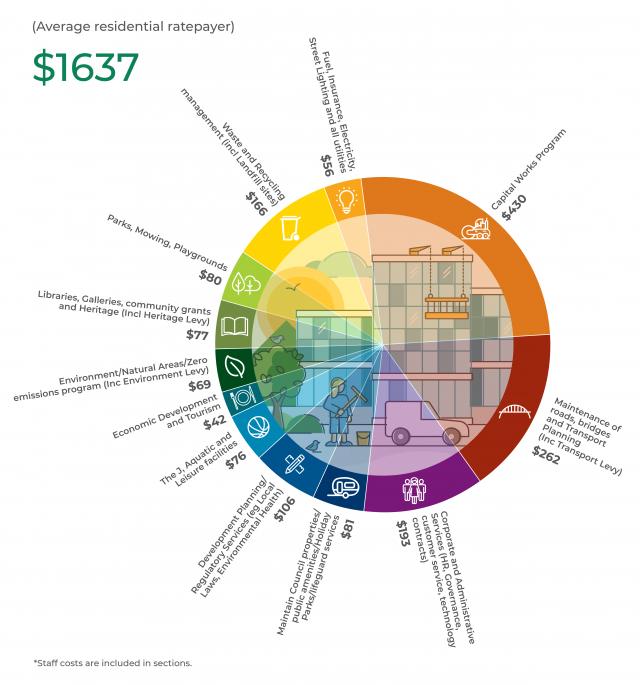Almost $700 of an average residential rate notice goes to improving, maintaining and managing Noosa Shire’s critical infrastructure needs.
To better explain where ratepayers’ funds go, Council has itemised an average residential rate notice to show how it funds over 100 different services, functions and activities.
The $159 million 2022-23 draft budget has a strong focus on delivering key infrastructure and implementing a range of waste initiatives and services.
Mayor Clare Stewart said even with a proposed 5.1 per cent increase to the total rates bill for most ratepayers, council continues to provide good value to residents.
“About $430 of a rates notice is directed to Capital Works and when you include maintaining our roads, bridges, footpaths and dealing with rising costs in waste management, the dollar figure jumps to about $858,” she said.
The average residential ratepayer will pay about $1637 in 2022-23.
“Like any household budget, we are faced with increased fuel, insurance and electricity costs and some of these have jumped significantly over the last 12 months.
That equates to $56 for the average residential ratepayer,” Cr Stewart said.
Council’s environmental, conservation, climate change and zero emissions work take up $69 of each rates notice.
Nearly $160 is spent providing important community facilities and services such as the J Noosa, the Noosa Aquatic Centre, Noosa Leisure Centre, providing lifeguard services, managing holiday parks and maintaining public toilets, barbecues and community halls.
It costs $77 per residential ratepayer to help fund the shire’s libraries, gallery, heritage activities and to provide the highly sought after community grants.
A full breakdown of the average residential rate notice is available on Council’s Your Say Noosa website, as part of the current consultation on the 2022-23 Draft Council Budget.
Cr Stewart said council had scrutinised all areas to ensure any rates increase would be no greater than the national CPI.
“Obviously, sharp increases in land valuations from the State Government coupled with the February floods had significantly impacted the budget deliberations,” she said.
Council chief executive officer Scot Waters said the significant valuation increases has been challenging for Council.
“Noosa like other South-East Queensland councils have been subject to State Government valuations which potentially could affect an individual property’s rates bill by more than the earmarked 5.1 per cent rate growth set by Noosa Council,”
“Should a property owner require further information or believe their valuation is incorrect, it’s important they contact the State Valuation Service to discuss their options in relation to a review of their valuation,” Mr Waters said.
“Councillors have worked with the finance team to adopt a measured approach to deal with the significant jump in land valuations to ease the burden on ratepayers, where possible,” Cr Stewart said.
“This budget allows Council to continue to deliver what our community wants and expects in the future.”
Residents have until Sunday 5 June to provide their thoughts on the draft budget and help prioritise the spending in certain areas by having a go with the Balancing the Budget interactive tool on council’s Your Say Noosa website.
“We are the first Noosa Council to open the budget for community consultation.
“Only a handful of councils allow the community to have some input in shaping the budget, so I really encourage ratepayers to take up the opportunity as it is about gauging your thoughts, wishes and opinions on what is proposed,” Cr Stewart said.
Councillors have shaped the draft document by taking on board the feedback from the Liveability Survey conducted late last year.
“With over 1600 responses to this survey, it has given us a real insight into what residents consider important, what they care about in their neighbourhood and the type of services and projects to improve liveability across the shire,” Cr Stewart said.
Consultation closes midnight Sunday 5 June.






